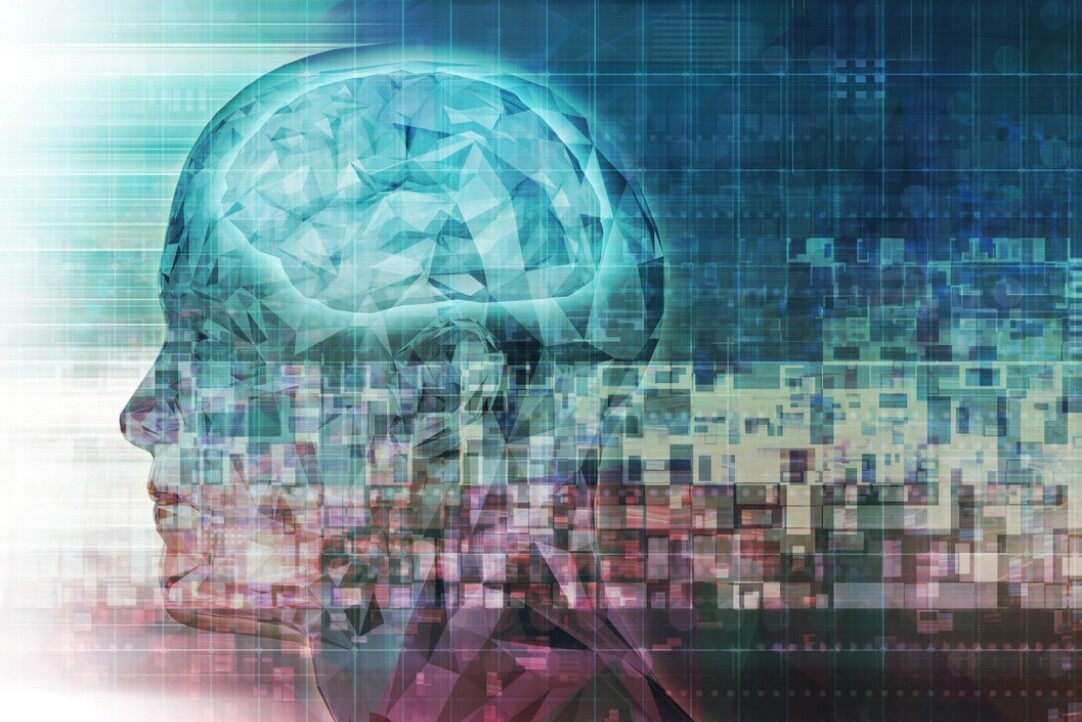Memory Diagnostics: IT Solutions for Mental Health

High-level technology is becoming an integral part of healthcare, and no field of medicine can work without a computer. HSE University scientists have developed a multilingual tablet application ‘Rey Test’ — the first fully automated and effective tool for diagnosing auditory and verbal memory disorders.
The application was presented at the joint seminar ‘Digital Technologies for Medical Applications’, which was organized as part of the strategic project ‘Digital Transformation: Technologies, Effects, and Performance‘ within the Priority 2030 programme.
The project was selected as part of a competitive process for research projects in 2022 by young HSE scientists (up to 35 years old) on digital transformation and the development of digital technologies..
Igor Agamirzian
‘Digital medicine is an extremely broad area of digital transformation,’ said Igor Agamirzyan, Director of the HSE School of Innovation and Entrepreneurship, Project Supervisor, in his welcoming speech.
Olga Buivolova, research fellow of the HSE Center for Language and Brain, presented a report on the application’s development.
Olga Buivolova
‘In practice, we often face a shortage of reliable standardized diagnostic tools. For research, it is necessary to understand how this or that function changes as a result of rehabilitation measures, and, of course, reliable and effective tools are required. Doctors often use a variety of different tools, and it can be difficult to compare the results,’ explains Olga.
At the moment there are no standardized tests in Russian to assess memory condition in both children and adults. There are also no materials available in other languages commonly used in Russia.
A group of scientists created an application for four language versions (Adyghe, Tatar, Ukrainian and Yakut) on the Android platform, and an iOS version is currently being developed. With the help of this tool, we will be able to examine auditory and verbal memory in several languages, something which is particularly relevant in a multilingual environment.
The version adapted for children was presented first.
The Rey test (1964) was developed as a comprehensive assessment of auditory and verbal memory, it helps to assess the condition of short-term and long-term memory, and to evaluate the effectiveness of the task under interference conditions. In addition, it can be done not only using auditory perception, but also through the use ofvisual modality. During the task, the subject is required to memorize a list of 15 words and recall them. During the following stage the subject is required to remember another, ‘distracting’ list of words comparable in linguistic parameters. After being presenting this list, the subject recalls the first list of words. In addition, the influence of temporal interference is investigated: after a 20-minute break the subject is asked to recall the first list of words. During the final stage, the subject must visually identify words from the first list among a group of 50 words.

The test result is determined by counting the correct answers. For the Russian-language version, normative data were collected in a large cohort of typically developing children, and benchmarks for normal task completion were determined for age and gender groups of children from 6 to 18 years old. By comparing with the average results, memory disorders and their degree can be determined.
This tool can be used in clinical practice or in research into cognitive functions. Currently, the researchers are working on introducing it in clinical and research practice, as well as preparing clinical recommendations. The developments can be used when diagnosing various psychiatric and neurological diseases.
‘The unification of the research procedure and calculation of results, as well as the provision of regulatory data makes the developed tool accurate and effective,’ stresses Olga Buivolova.
Currently, the application is being finalized, a version of the test for use in a group of adult native speakers is also being developed. In the future, the application will be available for download from popular mobile app stores.
See also:
New Science: How Early-Career Researchers Reach New Heights
In the context of increasing global competition, countries arestriving to ensure technological sovereignty. Those who can ensure economic development and concentrate intangible assets and human capital are emerging as leaders. The growing demand for qualified staff leads to an increase in the role of universities and the demand for early-career scientists. The challenges and opportunities for prospective specialists in the scientific community were discussed at the ‘StratPro Platform’ strategic session at HSE University.
Five Strategies for the Future: Key Achievements of HSE Strategic Projects in 2024
During the past year, scientists at HSE University have worked on five strategic projects aimed at advancing key areas essential to the development of modern individuals and society. Each of these projects is unique, yet they share common goals: creating innovative product solutions, generating fresh ideas for the economy, social sector, science, and education, and contributing to the university's research potential.
'We Are Creating the Medicine of the Future'
Dr Gerwin Schalk is a professor at Fudan University in Shanghai and a partner of the HSE Centre for Language and Brain within the framework of the strategic project 'Human Brain Resilience.' Dr Schalk is known as the creator of BCI2000, a non-commercial general-purpose brain-computer interface system. In this interview, he discusses modern neural interfaces, methods for post-stroke rehabilitation, a novel approach to neurosurgery, and shares his vision for the future of neurotechnology.
(Ab)normal Language: HSE Researchers Present Digital Tools for Assessing Mental Health Problems
Often, individuals with neurological or mental disorders exhibit distinctive language patterns. In modern clinical practice, digital tools can play a significant role in supporting language therapy and rehabilitation for persons with language disorders. Additionally, in the future, digital tools could assist healthcare specialists in assessing the severity of symptoms associated with such disorders.
Exploring Research Prospects and Collaboration Opportunities: Discussion of Strategic Projects Held at HSE University
On June 26 and 27, HSE University at Pokrovka hosted a discussion of potential partnerships between the university's research teams and strategic projects under the Priority 2030 programme. During the two-day session, the heads of strategic projects presented the main areas of their ongoing research, highlighted some of the key results achieved, and shared their vision for involving new researchers in the projects.
Keep Your Eyes On: A Prospective Device for Self-Monitoring Vision
As part of the Strategic Project 'Success and Self-Sustainability of the Individual in a Changing World,' scientists at HSE University have conducted a study to develop an electronic device designed to reduce the risk of occurrence and progression of eye diseases.
Artificial Intelligence as a Driver of Digital Transformation
In December, the HSE Institute for Statistical Studies and Economics of Knowledge and the HSE AI Research Centre participated in UNCTAD eWeek to discuss the future of the emerging digital economy. One of the topics discussed during the conference was artificial intelligence and its applications in driving the digital transformation of industry sectors. The session was co-organised by HSE University.
'While it May Sound Futuristic, It Holds Great Promise': Olga Dragoy Shares Her Thoughts on Language Function Restoration and the Future of Neurotechnology
In the spring of 2023, the fifth strategic project of the Priority 2030 programme, 'Human Brain Resilience: Neurocognitive Technologies for Adaptation, Learning, Development and Rehabilitation in a Changing Environment,' was launched at HSE University. The strategic project brings together researchers from all campuses of HSE University. In her interview with the HSE News Service, Olga Dragoy, head of the strategic project and Director of the HSE Centre for Language and Brain, shares an overview of the advanced technologies neuroscientists are creating today, the underlying inspiration driving these efforts, and the operational dynamics of interdisciplinary applied projects.
‘It Was Great to Look at Scientific Achievements through the Eyes of a Journalist, not a Scientist’
HSE University in Nizhny recently hosted the 2nd Autumn Neuro-linguistic School ‘NeuroSciCom: Popularising Language and Brain Studies’ for scientists and students at the HSE Centre for Language and Brain Studies in Nizhny Novgorod. The school was held as part of the 'Human Brain Resilience: Neurocognitive Technologies for Adaptation, Learning, Development and Rehabilitation in a Changing Environment' Strategic Project of the Priority 2030 programme.
Card Index: 'Success and Self-Sustainability of the Individual in a Changing World'
To achieve success and well-being, a modern person needs to keep up with ongoing social, economic, technological and cultural changes. However, in order to adapt to these, you need to be competent, healthy and active, develop cognitive abilities, acquire new skills and maintain friendships. All of this can expand people’s capabilities, revealing their potential. The HSE's unique multidisciplinary strategic project 'Success and Self-Sustainability of the Individual in a Changing World', which brings together educators, sociologists, psychologists, economists, biologists, physicians and digital technology specialists, helps to solve some of these tasks. Working together, they have managed to create a navigation system to improve human achievements for the benefit of the whole of society.


